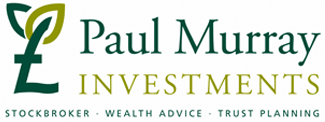With Christmas just round the corner, making an investment for your children or grandchildren is a great way to give them a financial start in life, long after the festivities are over.
Junior Individual Savings Account (ISA)
The first and easiest option to choose is a Junior Individual Savings Account (ISA), if the child is eligible. Junior ISAs are flexible, tax-efficient and can only be accessed by the child when they reach the age of 18. Parents and other relatives can save up to £4,080 in the 2015/16 tax year in a Junior ISA, and like adult ISAs, Junior ISAs can be held in cash or stocks and shares, or you can divide the allowance between both.
Child Trust Fund (CTF) transfer into a Junior ISA
Changes to CTF regulations now mean investors can choose to transfer existing Child Trust Funds into Junior ISAs. Junior ISA tax advantages may depend on your individual circumstances, and tax rules may change in the future.
NS&I Children’s Bond
You can invest between £25 and £3,000 tax-free for five years at a time until the child reaches 16, at which point they will gain control of the bond. The interest rate is guaranteed, so you’ll know how much the investment will earn at the end of the five-year term.
But if you need access to the money before the end of the five years, you’ll face a penalty – the equivalent of 90 days’ interest on the amount you cash in.
Regular savings
If you’re able to commit to making monthly contributions, then you can often benefit from higher rates of interest with a regular savings account.
They’re ideal for savers who are saving for something specific and wish to drip-feed cash into their account in a disciplined way, but these accounts will usually limit the number of withdrawals you can make each year and restrict the amount of money you can invest each month.
Be careful not to miss a payment or exceed the limit on withdrawals, as doing so can cost you interest.
Complete an R85 form
In the 2015/16 tax year, each child is entitled to a tax-free allowance of £10,600. Make sure you complete an HM Revenue & Customs form R85, so that any interest will be paid free of tax.
If you haven’t done this, you can reclaim it for them using form R40.
However, if you give your children money and it makes more than £100 a year before tax in interest (or £200 if both parents give money), all this income (not just the income over £100) will be taxed as if it were your own. This limit applies to income from gifts from parents only, not other family members.
Start investing
When investing for children, it is a good idea to go for something that gives you exposure to a broad spread of companies and sectors. It is important to get the right balance between good growth potential and not taking too much risk.
You can hold investments on behalf of your child in a bare trust or a designated account. A designated account will be earmarked for your child but will be in your name and treated as your investment, and, as such, any income of over £100 will be taxed at your rate, whereas a bare trust will be treated as your child’s for tax purposes. A designated account set up in the right way (i.e. irrevocable) is treated in the same way as a bare trust, and, in both cases, if funds originate from a parent and income exceeds £100pa, it will be taxed on the parent. The trustees of a bare trust have legal control until the child reaches the age of 18 (age 16 in Scotland).
Set up a pension
If you’re thinking of taking a much longer-term approach, you could take out a pension on behalf of your child and pay in regular amounts. You can currently contribute up to £2,880 each tax year, which is increased to £3,600 including tax relief. When your child reaches the age of 18, ownership of the pension would transfer to them, and they could start making their own contributions.




